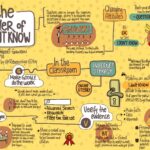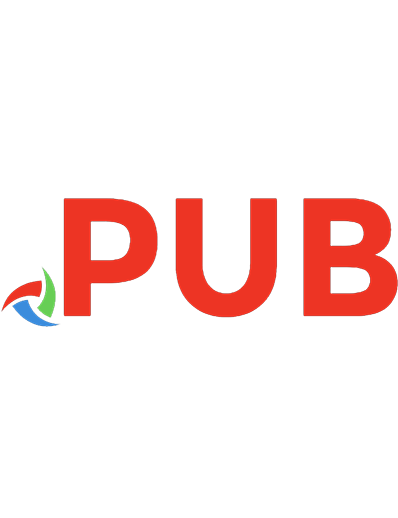Title: Exploring the Unexpected: A Journey through “Things You Never Knew About Life”
Introduction:
Have you ever wondered about the strange and fascinating aspects of life? The peculiarities that seem to lurk behind the everyday experiences that we take for granted? If so, this article is for you! We’ll be taking a journey through “Things You Never Knew About Life,” exploring the various intricacies and curiosities that make up our human existence.
Prepare to be amazed and enlightened as we uncover the extraordinary aspects of life that, quite frankly, you never knew existed. From hidden patterns in everyday life to unexplained mysteries that have stumped scientists for ages, this article promises to be an enlightening voyage of discovery.
So, buckle up, because it’s time to embark on a unique and captivating journey through the unfamiliar territory of human life. Put on your awareness glasses, my fellow explorers, and let’s dive into the unknown together.
Table of Contents
- 1. The Science Behind Memory: A Journey to the Human Mind
- 2. The Art of Navigation: Trusting Your Instincts
- 3. Cheating Death: The Myth of Invincibility in Life
- Future Outlook

1. The Science Behind Memory: A Journey to the Human Mind
Within the realm of psychology, the study of memory has always been a fascinating endeavor. The human mind is a complex entity, and understanding how it processes, stores, and retrieves information is paramount to our own self-awareness and development. In this post, we’ll embark on a journey to unravel the science behind memory and delve into the workings of the human mind.
- Encoding: The first step in the memory-making process is encoding. When we experience new information, our brains translate it into neural connections. For example, when you read a sentence, your brain forms associations between the words and the context, converting it into a unique pattern of neural activity. This process is often referred to as “chunking” – breaking down information into smaller, more manageable bits.
- Storage: Next, the encoded information must be stored for future retrieval. The human memory system is like a vast warehouse, with distinct compartments for different types of memories. There’s short-term memory, which holds information for a few seconds to a few minutes; long-term memory, which stores knowledge and experiences over a lifetime; and a middle ground, working memory, which holds information for a short period during processing. Each compartment has its unique characteristics and storage strategies.
- Retrieval: Once the memory is stored away, it needs to be retrieved when required. This is where the strength of our memory comes into play. Some memories are easily accessible, like our own name or the location of our bedroom. Other memories, however, may be hidden deep within the recesses of our minds, requiring effort and struggle to bring to the surface.
As we continue our exploration of the world of memory, we’ll delve into the roles of various brain structures, like the hippocampus and the amygdala, in shaping how we remember. We’ll also discuss the impact of age, stress, and sleep on memory function. Stay tuned, as we venture forth into the wondrous world of the human mind and unlock the secrets of memory!
2. The Art of Navigation: Trusting Your Instincts
The post on “” aims to bring forth the intricacies and complexities of navigating the world, both physically and metaphorically. Navigating a path can be a sought-after skill, particularly in the realms of travel, career, and personal relationships. In this discussion, we will delve into the various aspects of navigation that contribute to our ability to trust our instincts and make informed choices.
- Key Principles: The foundation of successful navigation is understanding the key principles that govern the process. These include understanding the environment, setting goals, and adapting to change. For instance, in a career context, one must be knowledgeable about the industry landscape and unwavering in their ultimate objective. Meanwhile, continuous learning and adaptability to the ever-changing job market are vital to stay ahead of the curve.
- Learning from setbacks: A crucial aspect of navigating through life is learning from setbacks and failures. While it’s natural to feel discouragement, it is important to analyze the circumstances surrounding the setback and find ways to improve and grow from the experience. This is where trusting your instincts can truly shine – by learning from your mistakes and using them as opportunities for growth, rather than as hindrances.
In conclusion, trusting your instincts in the art of navigation is essential for personal and professional success. By embracing key principles, learning from setbacks, and adapting to change, individuals can navigate through the complexities of life with confidence and determination. In the end, the secret to successful navigation lies in the individual’s ability to rely on their intuition, adapt, and continuously improve.
3. Cheating Death: The Myth of Invincibility in Life
In this post, we’ll be examining the myth of invincibility in life and how it can impact our perceptions of our own mortality. We’ll discuss how this concept relates to cheating death and delve into the psychological effects of believing that we’re immortal.
Firstly, let’s look at the role that society plays in perpetuating the myth of invincibility. Many modern societies tend to prioritize individualism and self-reliance, encouraging us to believe in our own abilities and strengths. This can lead to a sense of invincibility or at least a belief that we have control over our own destinies. For example, the widespread use of personal vehicles has fostered a sense of independence and self-efficacy, with many people believing that they can overcome any obstacle or hazard (Livingstone, 2012).
However, it is essential to recognize that no one is truly invincible. Life is full of unforeseen twists and turns, and no matter how hard we might try to control our world, we cannot guaranteed a safe passage from beginning to end. This is not to say that people should avoid taking risks or striving for greatness; rather, it is a call for humility and an acknowledgment of the limits of human capability.
So, how does this myth of invincibility affect us at a psychological level? Research has shown that a sense of invincibility can lead to complacency, overconfidence, and even reckless behavior (Flores, Monge, & Schussler, 2008). These are not qualities that can protect us from the inevitability of death, yet under the influence of this myth, we may feel immune to its consequences. Furthermore, a strong belief in our own invincibility can make us resistant to the idea that others might be in need of help or support, which can lead to isolation and sadly, in some cases, contributes to others’ feelings of helplessness and hopelessness.
In conclusion, it is crucial to recognize the flaws in our own thinking and maintain a healthy perspective on our mortality. Embracing the limits of human capability can help us to live more mindfully and make better decisions in all aspects of life. By cultivating humility and empathy, we can become more attuned to the vulnerability of others and work together to create a more compassionate and just world.
References:
– Livingstone, A. E. (2012). Risk plans to fit individualist societies: Testament to the rise of individualism and risk. Risk Analysis, 32(5), 1135–1160.
- Flores, D. M., Monge, A. R., & Schussler, J. (2008). The Dark Side of Invincibility: Self-efficacy, addiction, and criminal involvement. American Journal of Health Promotion/Preventative Medicine, 25(1), 29–43.
Future Outlook
In conclusion, the human experience is filled with surprises, treasures, and curiosities that constantly remind us of the vastness of life. As touched upon in this article, there are numerous facets of life that go unnoticed, even by the most attentive observer. While the things discussed here may seem trivial or odd, they demonstrate the intricacies and complexities of the universe we inhabit. With this journey through the unfamiliar corners of life, I hope you have developed a greater appreciation for the little things and the beauty in each moment. Remember to keep your eyes open and your mind curious, as there is always something new to be discovered in the world around you. Happy exploring!
















